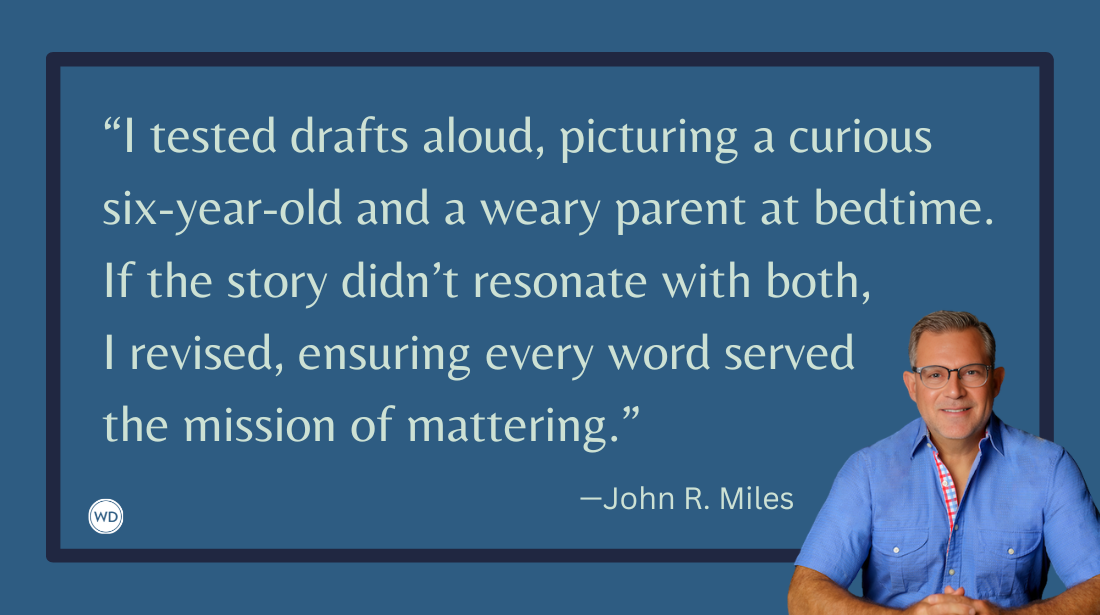The Tree and the Voice and Writing a Novel
Author Chip Jacobs shares the events leading up to a near death experience while writing a novel during a catastrophic weather event.
Every night after work, my decompression routine usually sent me into the corner of my backyard, where, by an old gardening shed, I’d hang out with Rigby, my German Shepherd, as well as my potential killer, sitting there silent and stoic on the other side of the neighbor’s fence. Life’s strange that way about pairings, and over time my fuzzy dread about the menace across the way slacked into a blasé sense of immunity.
It wasn’t like that King-Kong-sized eucalyptus tree with frightening measurables—six-seven stories tall, five-plus-ton heft, 747-engine-thick trunk—held a grudge against me. Sure, it was a leaf-dropping, rat-harboring nuisance, but I deluded myself its low center of gravity assured it was virtually cemented into the earth. Looking back to January, when two raging wildfires torched a destructive path through Altadena, California, near where I live, and Pacific Palisades out near the coast, I should’ve revisited those lazy assumptions.
Now, jump back to the day before the blazes ripped through bone-dry Los Angeles. A ferocious windstorm, with gusts reaching near-hurricane levels, battered the landscape, whipping around everything not lashed down. With tragicomically bad timing, we’d scheduled yard work to install outdoor turf that very morning, and none of my appeals to the supervisor about the hazard posed by the arboreal monster, which was shaking like I’d never seen it, persuaded him to yank his crew. For him, time was money. For me, after they finished without injury, it was time for self-crucifixion.
You should’ve done something about the nightmare eucalyptus! Notified the city. Rallied the neighborhood. No one’s going to label you a Karen for trying to protect someone.
It didn’t take a mathematician to calculate that if that thing crashed down onto somebody’s roof, you wouldn’t be calling an ambulance afterward, only the coroner’s truck. Another reason I should’ve sprung to action was the bitter irony of the situation. One of the tenants on the property anchored by a Davy-Crockett-esque log cabin and multiple overgrown, under-trimmed trees, should’ve known better. Him being a Nobel-Prize-winning, Caltech physicist and all.
By sundown that awful day, the gales hadn’t slowed. They’d accelerated in the suburbs near Pasadena’s Rose Bowl, jacking up my sense of foreboding when I was already distracted by another urgent matter. The deadline for my second novel, Later Days was fast approaching, and like most writers, my emotional attachment translated into a feverish compulsion to massage every syllable. Boiled down, one side of me, the damn-the-torpedoes, former-reporter side, hankeredto wander outside by my sentimental man-cave shed with Rigby to gauge the danger level. Colliding with that was another charged impulse, except this didn’t feel self-originated. It was, best I can describe it, a faint, almost disembodied murmur urging me to forget that tree and remember my manuscript.
“Put your mind there,” the voice seemed to whisper. “Buff out the rough edges.”
So, two psychological tractor beams, one decision. I heeded the voice, returning to my desk about 6 pm to polish a couple sentences in a tale about a rocky friendship that survived a Lord-of-the-Flies adolescence in the late-1970s, just maybe not a jinxed adulthood during Y2K. Still unhappy with how I described the sway of testosterone at the all-boys, prep school at the heart of my book, I experimented with phraseology, finally landing on … “teenage horndoggery.” (As if my literary heroes Fitzgerald, Irving, or Roth would ever conjure teenage horndoggery.) I hit save on my computer in my home office and spilled onto the family room couch with my wife.
Predictably on TV, it was wall-to-wall weather-apocalypse chronicling the wind damage and the onset of what’d be the Eaton and Palisades fires. Then whack! Before we could even doomscroll a minute came a mortifying jolt that shook our house’s foundation, a jolt you also felt in your bones.
One shaky step at a time, we edged into the backyard gone pitch black after the yard work knocked out our outdoor lights. Using our iPhone flashlights, we got the disastrous picture anyway. That paranoia-stoking eucalyptus was no longer blocking the sky with its top-heavy foliage because it was no longer standing. Nope, it’d tumbled sideways, barely missing another neighbor’s house with young children inside, to land 30 feet from our roofline. We now had its massive trunk resting precariously atop our suddenly-crumpled fence, the tree’s minty, sinewy branches so vast they swallowed up half the backyard. We each gave a little yelp and pivoted, though not before I glimpsed a sinister, orange glow of flame on the mountainside.
I lost track of time afterwards, for my heart was up near my tonsils and my back was slicked in cold sweat. My subconscious pegged it before I did: Rigby, and I were damn fortunate to be alive! Yet epiphany wasn’t explanation, and every atom in me needed to know why we’d not been out there? Was it raw, good fortune that rerouted me inside to fuss over my book, rather than exposing myself to a potential killing field? Serendipity by any other name?
Or, I couldn’t help wondering, was there a more farfetched reason, a logically preposterously reason smacking of divine intervention? Buckle up, for here’s where it gets weirder. In shifting from a coming-of-age tale to an adult, life-coming-apart saga, Later Days plants its antiheroes—one a diehard atheist, the other a disenchanted believer—in a critical scene at a Near Death Experience support group. At the climax, after one character slips his mortal coil, his longtime pal sinks into all-too-familiar grief until he’s contacted from, let’s just say, a scientifically unverifiable address.
The paradox of it all, reality-reflecting-art-refracting-my-close-call, wasn’t lost on my dizzied brain. I’d written about Near Death Experience only to experience my own. I’d fabricated a character based on a real-life, ex-classmate, who sadly died before this novel was published, compelling me to wrap my heard around the lulu possibility he’d swooped in as my guardian angel to shelter me. If this was a literary feedback loop, I’d created a character with uncanny powers, then something cast me in a meta-fiction drama where I’m rescued from the ether. I flashed to Paul McCartney’s story about his dead mother appearing in a dream, cooing her son during an emotionally stormy time to “Let it Be.” Then again, she delivered a message of peace, not a shoulder tap her son was in peril.
I got a daylight eyeful of the carnage when back from mandatory evacuation. How the meat of the creamy trunk had obliterated my shed as if a pissed-off Paul Bunyon stomped it. Its splintered roof. The buckled walls. Had my four-legged BFF and I been beneath the tree when Mother Nature blew it down, we would’ve been flesh pancakes.
In the months afterward, careening between survivor’s guilt given the massive loss of life and property here, and raw gratitude, I at last stopped wrestling with myself. Ended my one-man debate society. If my imagination could drum up a character able to bend space for his arc, why shouldn’t a message I believe was a miracle, not magical thinking, bend my own?
Check out Chip Jacobs' Later Days here:
(WD uses affiliate links)








